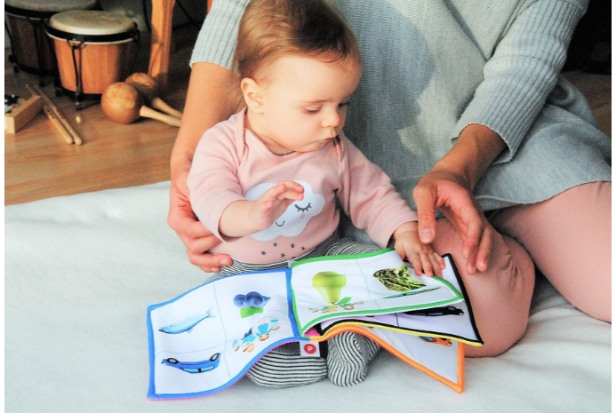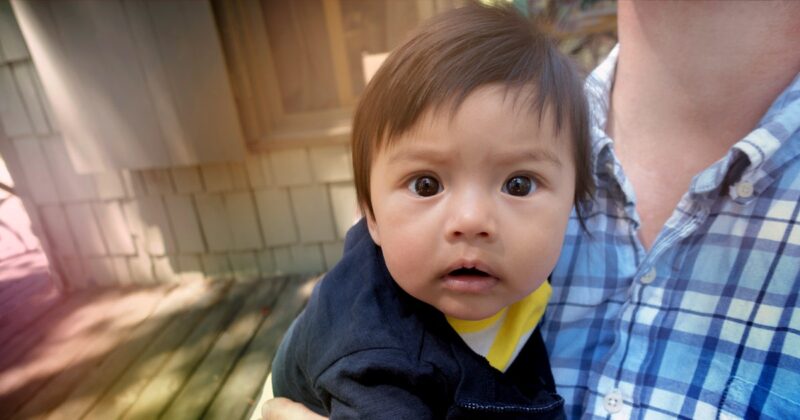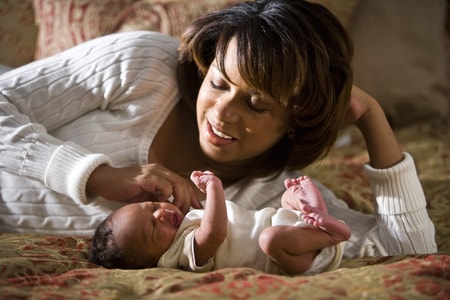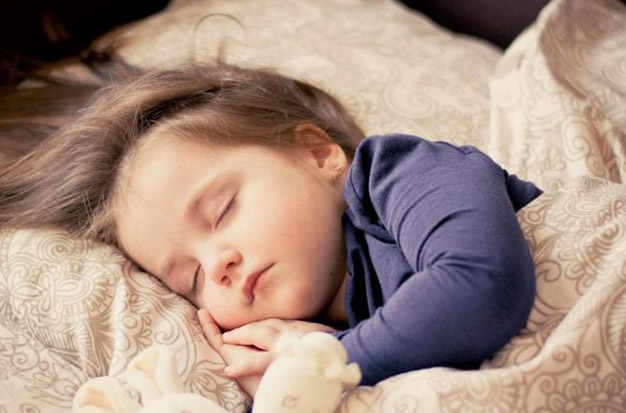Not every mom has the luxury of choosing when to start using daycare. Daycare is immediately necessary because you might only have a few weeks of maternity leave. The best and worst ages to start daycare are covered in detail in this article.
In order to help you make an informed choice, we have compiled the results of over 20 papers and videos on the topic of modern childcare and how it affects children’s development.
What is the ideal age to begin child care? When should a child start daycare, in your opinion? When is it not advisable to enroll your child in child care?
What is the Best Age to Start Daycare?
In general, pediatricians tend to agree that the ideal age to start daycare is 12 months old. By waiting this long, the parents have had enough opportunity to establish strong bonds with their child, get used to taking care of them, and establish routines for feeding and sleeping.
But there are several recommendations for when daycare can start, from 6 weeks to 6 months, or even 1 year and 3 years.
Remember that many daycare facilities that offer care to children in groups won’t accept infants younger than six weeks old and frequently lack the facilities necessary to care for a child who was born prematurely or who has special medical requirements.
Life happens, though, so it’s okay if you don’t start your baby in daycare at this recommended age. The majority of infants can enroll in daycare as early as 6 weeks. Daycare facilities are the best places for your child to socialize and develop good behavior at a young age.
7 Signs Your Child is Ready for Daycare
Your child might be ready for daycare if he or she:
- is curious and interested in the world around them
- has a strong bond with the parents
- can play independently for short periods of time
- starts adapting to routines, like sleeping through the night without waking up or eating at specific times
- is starting to express themselves with sign language or single words
- can express basic needs like hunger and thirst
- has a consistent sleep schedule
What is the Worst Age to Start Daycare?
Although there is a suggested minimum age, the best time to enroll your child in daycare depends on a number of variables, including personality and needs of the child, time constraints, access to resources and facilities, and personal preferences.
Based on this, the “wrong age” varies from child to child. In that case, the real query is: How prepared is your child? The worst time to enroll your child in daycare would ultimately be before they have reached a point of physical, emotional, and social readiness.
How to Know If a Baby is Ready for Daycare?
There are five excellent signs that your kid is prepared for daycare.
#1. When Your Baby Starts Displaying Independence
The ability to complete tasks independently is a key indicator of a child’s readiness for daycare. In a child’s development, especially in the second year, increased levels of independence are to be expected.
This entails being independent in daily activities like playing, eating, dressing, and using the restroom without assistance or close supervision.
#2. Ability to Adhere to Rules and Adjust to Routines
The children must adhere to the many routines and rules that are present in daycare facilities. This might entail doing things like following nap schedules or standing in line during breaks. It will be simpler for your child to adjust to following rules and sticking to routines at the daycare if they have already learned to do so at home.
#3. Observable Curiosity
Children naturally exhibit curiosity, which can be seen as early as 12 months of age. It helps with social development and makes the switch to daycare much easier if your child is used to being exposed to new people and environments.
#4. Increased Interactiveness
For a young child to get to know and play with other kids, the daycare is a fantastic place. Children who are at ease around other kids and who get along well with their playmates are prepared for daycare. It is to be expected that the first few days will be difficult, but frequently they will quickly become accustomed to socializing.
#5. Mastering Potty Training
The ability of your child to enjoy their time outside the home depends on them having completed potty training. A child is more likely to enjoy attending daycare when they have grown into the ability to move around without making messes.
What Are the Risks of Starting a Daycare Too Early?
Beginning when your child is not ready for it can have long-term negative effects on him or her. There are some potential risks to starting too early that you should be aware of before you decide to enroll your child in daycare before he or she is ready.
#1. Your Child May Experience Higher Levels of Stress
According to studies, children who attend daycare have higher levels of the hormone cortisol, which causes stress, as well as higher levels of stress. In addition, a number of specialists in child care think that separation anxiety peaks at 9 months.
This is attributed to a child’s “attachment seeking response” which occurs when there is no available attachment figure. Despite how sensitive a caregiver may be, it is common for children not to view them as attachment figures because, at first, they are essentially strangers.
#2. Increased Risk of Behavioral Issues and Aggression
Children who attend daycare for long hours starting at age 6 months are more likely to experience behavioral problems of varying severity down the road. Long-term non-parental childcare before a child is 12 months old has been linked to an increase in aggressive behavior, behavioral issues, and poor social behavior.
The daycare center’s quality is another crucial factor. No matter how many hours they spend in daycare, children who receive high-quality care exhibit better pro-social behaviors and less aggressive behavior.
#3. Disrupted Parent-Child Attachment
You should not take for granted the relationship that exists between parents and children. When given enough time and space to fully form, it is frequently beautiful, strong, and natural.
This is why using daycare services increases the chance of upsetting the bond between a parent and child. Because the child feels that the relationship is no longer safe or secure, it can lead to an insecure attachment when the parent leaves too frequently or too early.
Better cognitive outcomes, such as the improvement of language, memory, and pre-academic skills, can be achieved through better quality care from sensitive caregivers, which can both substantially reduce or even completely eliminate these risks.

When Should You Not Send Your Child to Daycare?
Both parents are typically very busy at work. As a result, many babies are raised with the assistance of care facilities. But there are some situations where you must refrain from sending your children to daycare, such as when they are ill or are displaying symptoms of an illness.
Therefore, any sign of fever or illness on the baby must be treated right away; during this time, the daycare is most definitely not the appropriate place for them. By doing this, you’ll not only ensure that your child receives the care and assistance he or she needs, but also that diseases won’t spread.
What to Look for in a Daycare?
Once you’ve decided to enroll your child in childcare, there is one more crucial step you must take: locate a top-notch childcare facility that is close to your home. Here are some characteristics to look for as you conduct your research before choosing.
#1. Look Out for Reviews
You need to choose a childcare provider you can trust because leaving your child in the care of another person requires some level of trust. This can be determined based on how well-known they are. Make sure to keep an eye out for both favorable and unfavorable comments from previous or current parents as you conduct your research.
#2. Ensure That the Daycare is Safe and Fun
The daycare setting needs to be hygienic, engaging, and secure for your child because he or she will be there for a significant amount of time. Simply base your judgment on your first impression of the area.
Make sure the daycare has environments that are age-appropriate for each stage, such as floor space for crawlers and desks for older children, and take a look around to see how content, at ease, and engaged the kids seem.
#3. a Schedule That is Suitable for Your Baby
A great daycare must have a schedule and curriculum that match your goals for your child. This could either be flexible, rigid, or in between. Consider the perfect day for your child and check that the daycare you select offers that. Verifying how much of a role television or videos play and making sure they are age-appropriate are also critical.
#4. Caring and Qualified Caregivers
You must entrust your child to those who are capable of caring for him or her well. The daycare staff you select should possess the bare minimum of credentials and training. Additionally, pay attention to how they behave toward and interact with the kids in their care.
Tone and body language are also considered here in addition to teaching. As a final goal, there should be little employee turnover and a low child-to-caregiver ratio.
Final Thoughts
There is no ideal time to begin daycare, despite the concerns of many parents. To make sure that the daycare meets your needs and those of your child, it is crucial to evaluate the quality of the facility. It should never be wrong for you to consider starting a daycare as a wonderful option for raising your child.
Frequently Asked Questions
The best and worst ages to enroll children in daycare are discussed in the following frequently asked questions.
What is the Average Cost of Daycare?
The majority of the time, the cost of daycare is influenced by your daycare preference and your child’s age. Nevertheless, the average weekly cost of a daycare in the United States was between $300 and $340.
What is the Difference Between Daycare and Childcare?
Daycare is only available during the day and during regular business hours. Contrarily, childcare is more inclusive and thorough. Families, friends, or childcare centers offer childcare services.
How Do You Deal With the Guilt of Leaving Your Child in Daycare?
Most parents feel bad about leaving their kids in daycare. It’s normal to feel this way. However, you must strive to come to terms with the fact that daycare is what you need.
Because you were able to find a way to care for your baby despite your busy schedule, you shouldn’t feel bad about it because it makes you a better parent.
Are 18 Months Too Early for Daycare?
18 months is not too early for daycare. The immune system of your child has had a chance to begin developing. If you decide to enroll your child in daycare at age 18 months, don’t feel bad about it.
Is Daycare Bad for a 2-Year-Old?
Your child will benefit from being in daycare because they will develop their social skills and sense of independence, which they wouldn’t if they were with a stay-at-home parent.
When to Enroll Your Child in Daycare?
The best age to enroll your child in daycare, according to many child experts, is 12 months old. If your child begins school earlier than that, don’t feel bad.



